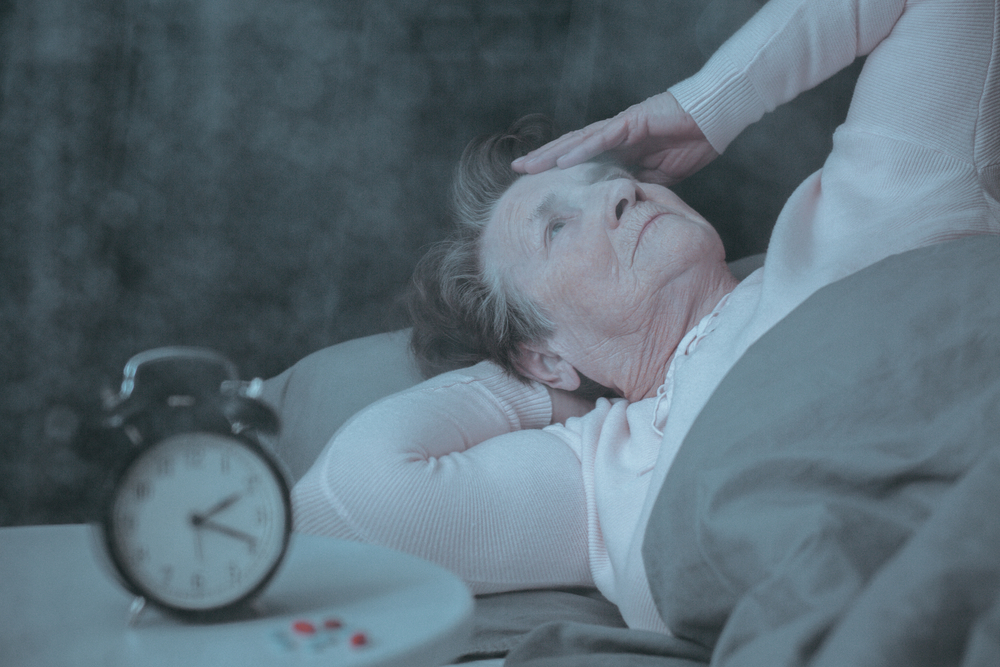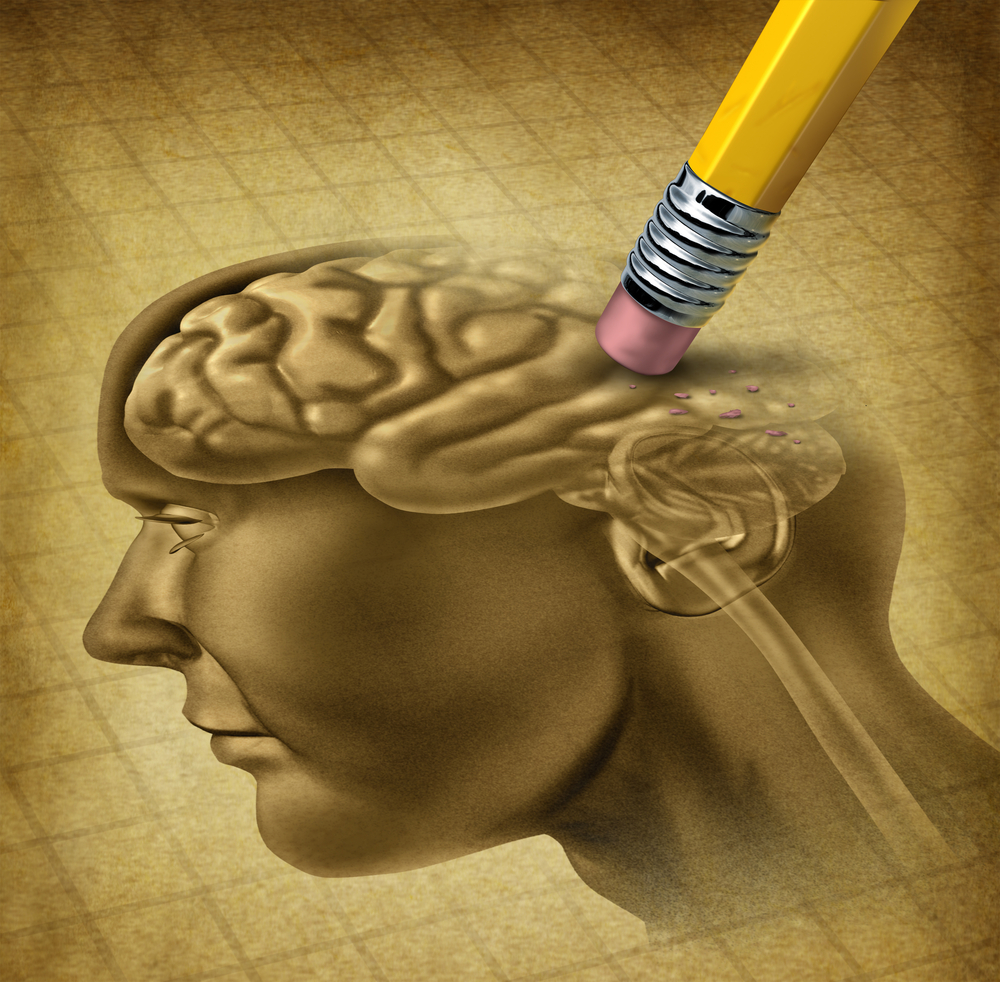The older patient population is growing rapidly around the world and in the USA. Almost half of seniors over age 65 who live at home are dissatisfied with their sleep, and nearly two-thirds of those residing in nursing home facilities suffer from sleep disorders. Chronic and pervasive sleep complaints and disturbances are frequently associated with excessive daytime sleepiness and may result in impaired cognition, diminished intellect, poor memory, confusion, and psychomotor retardation all of which may be misinterpreted as dementia.
The key sleep disorders impacting patients with dementia include insomnia, hypersomnolence, circadian rhythm misalignment, sleep disordered breathing, motor disturbances of sleep such as periodic leg movement disorder of sleep and restless leg syndrome, and parasomnias, mostly in the form of rapid eye movement (REM) sleep behavior disorder (RBD). RBD is a pre-clinical marker for a class of neurodegenerative diseases, the “synucleinopathies”, and requires formal polysomnographic evaluation. Untreated sleep disorders may exacerbate cognitive and behavioral symptoms in patients with dementia and are a source of considerable stress for bed partners and family members. When left untreated, sleep disturbances may also increase the risk of injury at night, compromise health-related quality of life, and precipitate and accelerate social and economic burdens for caregivers.
Sleep, Cognition and Dementia. Curr Psychiatry Rep. 2015 Dec;17(12):97.Porter VR1, Buxton WG2, Avidan AY3.

Obstructive Sleep Apnea Syndrome: An Emerging Risk Factor for Dementia.
CNS Neurol Disord Drug Targets. 2016;15(6):678-82. Buratti L, Luzzi S, Petrelli C, Baldinelli S, Viticchi G, Provinciali L, Altamura C, Vernieri F, Silvestrini M
Studies have suggested that obstructive sleep apnea syndrome (OSAS) may increase the risk of developing cognitive impairment. In patients with Alzheimer’s disease (AD), the prevalence of OSAS is much higher than that expected in cognitively healthy subjects. A deeper knowledge of the pathophysiological link between OSAS and AD and the demonstration that OSAS may directly influence the development of cognitive alterations, would increase prevention and treatment strategies for AD patients. In this article, we discuss the evidence of the association between OSAS and dementia. Moreover, we present data about the functional and anatomic cerebral changes induced by OSAS and the possible effects on cognitive activities and on AD pathogenesis. The possibility to positively influence cognitive impairment by OSAS treatment will be also discussed.
Sleep characteristics and risk of dementia and Alzheimer’s disease:
The Atherosclerosis Risk in Communities Study
Alzheimers Dement. 2017 Jul 21. pii: S1552-5260(17)32522-0. doi: 10.1016/j.jalz.2017.06.2269. Lutsey PL1, Misialek JR2, Mosley TH3, Gottesman RF4, Punjabi NM5, Shahar E6, MacLehose R7, Ogilvie RP7, Knopman D8, Alonso A9.
INTRODUCTION: This study tested the hypotheses that late-midlife obstructive sleep apnea (OSA) and short and long sleep duration are associated with dementia over 15 years of follow-up.
METHODS: A total of 1667 Atherosclerosis Risk in Communities Study participants underwent in-home polysomnography (1996-1998) and were followed for dementia. Dementia was defined by (1) hospitalization diagnosis codes (1996-2012) and (2) a comprehensive neurocognitive examination (2011-2013) with adjudication.
RESULTS: OSA and sleep duration were not associated with risk of incident dementia. When using adjudicated outcomes, severe OSA (≥30 vs. <5 apnea-hypopnea events/hour) was associated with higher risk of all-cause dementia (risk ratio [95% confidence interval], 2.35 [1.06-5.18]) and Alzheimer’s disease dementia (1.66 [1.03-2.68]); associations were attenuated with cardiovascular risk factor adjustment. Sleeping <7 versus 8 to ≤9 hours was associated with higher risk of all-cause dementia.
DISCUSSION: When adjudicated outcome definitions were used, late-midlife OSA and short sleep duration were associated with all-cause and Alzheimer’s disease dementia in later life.
Obstructive Sleep Apnea is Associated With Early but Possibly Modifiable
Alzheimer’s Disease Biomarkers Changes.
Sleep. 2017 May 1;40(5). doi: 10.1093/sleep/zsx011. Liguori C1, Mercuri NB1,2,3, Izzi F1, Romigi A4, Cordella A2, Sancesario G3, Placidi F1.
STUDY OBJECTIVES: Obstructive sleep apnea (OSA) is a common sleep disorder. The, literature lacks studies examining sleep, cognition, and Alzheimer’s Disease (AD) cerebrospinal fluid (CSF) biomarkers in OSA patients. Therefore, we first studied cognitive performances, polysomnographic sleep, and CSF β-amyloid42, tau proteins, and lactate levels in patients affected by subjective cognitive impairment (SCI) divided in three groups: OSA patients (showing an Apnea-Hypopnea Index [AHI] ≥15/hr), controls (showing an AHI < 15/hr), and patients with OSA treated by continuous positive airway pressure (CPAP).
METHODS: We compared results among 25 OSA, 10 OSA-CPAP, and 15 controls who underwent a protocol counting neuropsychological testing in the morning, 48-hr polysomnography followed by CSF analysis.
RESULTS: OSA patients showed lower CSF Aβ42 concentrations, higher CSF lactate levels, and higher t-tau/Aβ42 ratio compared to controls and OSA-CPAP patients. OSA patients also showed reduced sleep quality and continuity and lower performances at memory, intelligence, and executive tests than controls and OSA-CPAP patients. We found significant relationships among higher CSF tau proteins levels, sleep impairment, and increased CSF lactate levels in the OSA group. Moreover, lower CSF Aβ42 levels correlate with memory impairment and nocturnal oxygen saturation parameters in OSA patients.
CONCLUSIONS: We hypothesize that OSA reducing sleep quality and producing intermittent hypoxia lowers CSF Aβ42 levels, increases CSF lactate levels, and alters cognitive performances in SCI patients, thus inducing early AD clinical and neuropathological biomarkers changes. Notably, controls as well as OSA-CPAP SCI patients did not show clinical and biochemical AD markers. Therefore, OSA may induce early but possibly CPAP-modifiable AD biomarkers changes.

Impact of sleep on the risk of cognitive decline and dementia.
Curr Opin Psychiatry. 2014 Nov;27(6)Spira AP1, Chen-Edinboro LP, Wu MN, Yaffe K.
PURPOSE OF REVIEW: Trouble falling or staying asleep, poor sleep quality, and short or long sleep duration are gaining attention as potential risk factors for cognitive decline and dementia, including Alzheimer’s disease. Sleep-disordered breathing has also been linked to these outcomes. Here, we review recent observational and experimental studies investigating the effect of poor sleep on cognitive outcomes and Alzheimer’s disease, and discuss possible mechanisms.
RECENT FINDINGS: Observational studies with self-report and objective sleep measures (e.g. wrist actigraphy, polysomnography) support links between disturbed sleep and cognitive decline. Several recently published studies demonstrate associations between sleep variables and measures of Alzheimer’s disease pathology, including cerebrospinal fluid measures of Aβ and PET measures of Aβ deposition. In addition, experimental studies suggest that sleep loss alters cerebrospinal fluid Aβ dynamics, decrements in slow-wave sleep may decrease the clearance of Aβ from the brain, and hypoxemia characteristic of sleep-disordered breathing increases Aβ production.
SUMMARY: Findings indicate that poor sleep is a risk factor for cognitive decline and Alzheimer’s disease. Although mechanisms underlying these associations are not yet clear, healthy sleep appears to play an important role in maintaining brain health with age, and may play a key role in Alzheimer’s disease prevention.
Changes in Neurocognitive Architecture in Patients with Obstructive Sleep Apnea Treated with Continuous Positive Airway Pressure.
EBioMedicine. 2016 May;7:221-9.Rosenzweig I1, Glasser M2, Crum WR3, Kempton MJ3, Milosevic
M4, McMillan A2, Leschziner GD5, Kumari V6, Goadsby P7, Simonds AK2, Williams SC3, Morrell MJ8.
BACKGROUND: Obstructive sleep apnea (OSA) is a chronic, multisystem disorder that has a bidirectional relationship with several major neurological disorders, including Alzheimer’s dementia. Treatment with Continuous Positive Airway Pressure (CPAP) offers some protection from the effects of OSA, although it is still unclear which populations should be targeted, for how long, and what the effects of treatment are on different organ systems. We investigated whether cognitive improvements can be achieved as early as one month into CPAP treatment in patients with OSA.
METHODS: 55 patients (mean (SD) age: 47.6 (11.1) years) with newly diagnosed moderate-severe OSA (Oxygen Desaturation Index: 36.6 (25.2) events/hour; Epworth sleepiness score (ESS): 12.8 (4.9)) and 35 matched healthy volunteers were studied. All participants underwent neurocognitive testing, neuroimaging and polysomnography. Patients were randomized into parallel groups: CPAP with best supportive care (BSC), or BSC alone for one month, after which they were re-tested.
FINDINGS: One month of CPAP with BSC resulted in a hypertrophic trend in the right thalamus [mean difference (%): 4.04, 95% CI: 1.47 to 6.61], which was absent in the BSC group [-2.29, 95% CI: -4.34 to -0.24]. Significant improvement was also recorded in ESS, in the CPAP plus BSC group, following treatment [mean difference (%): -27.97, 95% CI: -36.75 to -19.19 vs 2.46, 95% CI: -5.23 to 10.15; P=0.012], correlated to neuroplastic changes in brainstem (r=-0.37; P=0.05), and improvements in delayed logical memory scores [57.20, 95% CI: 42.94 to 71.46 vs 23.41, 95% CI: 17.17 to 29.65; P=0.037].
INTERPRETATION: One month of CPAP treatment can lead to adaptive alterations in the neurocognitive architecture that underlies the reduced sleepiness, and improved verbal episodic memory in patients with OSA. We propose that partial neural recovery occurs during short periods of treatment with CPAP.

Sleep disturbances increase the risk of dementia: A systematic review and meta-analysis.
Sleep Med Rev. 2017 Jul 6. pii: S1087-0792(17)30011-4. Shi L1, Chen SJ2, Ma MY3, Bao YP4, Han Y4, Wang YM5, Shi J4, Vitiello MV6, Lu L7.
Sleep disturbances and dementia are two common and significant health problems in older adults. Investigations suggest that sleepdisturbances might increase the risk of dementia. The aim of the present study was to systematically review and meta-analyze the predictive roles of overall sleep disturbances, their subtypes (e.g., insomnia, sleep disordered breathing [SDB]), and other sleep problems (e.g., excessive daytime sleepiness, sleep-related movement disorder, circadian rhythm sleep disorder, and nonspecific sleep problems) in incident all-cause dementia and Alzheimer’s disease (AD) and vascular dementia subtypes.
We performed a systematic search of the PubMed, EMBase, ISI Web of Science, and PsycINFO databases for longitudinal studies that were published up to October 28, 2016. A total of 12,926 papers were retrieved. Eighteen longitudinal studies that included 246,786 subjects at baseline and 25,847 dementia cases after an average 9.49 y of follow-up were eligible for inclusion. Compared with individuals without sleep disturbances, subjects who reported sleepdisturbances had a higher risk of incident all-cause dementia, AD, and vascular dementia.
The subgroup analysis showed that insomnia increased the risk of AD but not vascular or all-cause dementia. In contrast, SDB was associated with a higher incidence of all-cause dementia, AD, and vascular dementia. This meta-analysis suggests that sleep disturbances may predict the risk of incident dementia. Moreover, insomnia was associated only with incident AD, and SDB was a risk factor of all-cause dementia, AD, and vascular dementia. However, sleep disturbances were evaluated mainly based on self-reports, and some confounders may mediate the relationship between sleep disturbances and dementia. Therefore, the results should be further validated. In summary, these findings may help identify individuals who are at risk for dementia and optimize early prevention strategies.
Sleep, Cognitive impairment, and Alzheimer’s disease: A Systematic Review and Meta-Analysis.
Sleep. 2017 Jan 1;40(1). Bubu OM1, Brannick M2, Mortimer J1, Umasabor-Bubu O1, Sebastião YV1, Wen Y3, Schwartz S1, Borenstein AR1, Wu Y1, Morgan D4,5, Anderson WM6.
STUDY OBJECTIVES: Mounting evidence implicates disturbed sleep or lack of sleep as one of the risk factors for Alzheimer’s disease (AD), but the extent of the risk is uncertain. We conducted a broad systematic review and meta-analysis to quantify the effect of sleep problems/disorders on cognitive impairment and AD.
METHODS: Original published literature assessing any association of sleep problems or disorders with cognitive impairment or AD was identified by searching PubMed, Embase, Web of Science, and the Cochrane library. Effect estimates of individual studies were pooled and relative risks (RR) and 95% confidence intervals (CI) were calculated using random effects models. We also estimated the population attributable risk.
RESULTS: Twenty-seven observational studies (n = 69216 participants) that provided 52 RR estimates were included in the meta-analysis. Individuals with sleep problems had a 1.55 (95% CI: 1.25-1.93), 1.65 (95% CI: 1.45-1.86), and 3.78 (95% CI: 2.27-6.30) times higher risk of AD, cognitive impairment, and preclinical AD than individuals without sleep problems, respectively. The overall meta-analysis revealed that individuals with sleep problems had a 1.68 (95% CI: 1.51-1.87) times higher risk for the combined outcome of cognitive impairment and/or AD. Approximately 15% of AD in the population may be attributed to sleep problems.
CONCLUSION: This meta-analysis confirmed the association between sleep and cognitive impairment or AD and, for the first time, consolidated the evidence to provide an “average” magnitude of effect. As sleep problems are of a growing concern in the population, these findings are of interest for potential prevention of AD.



